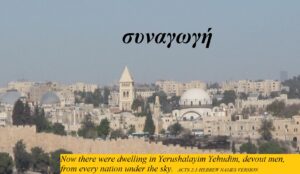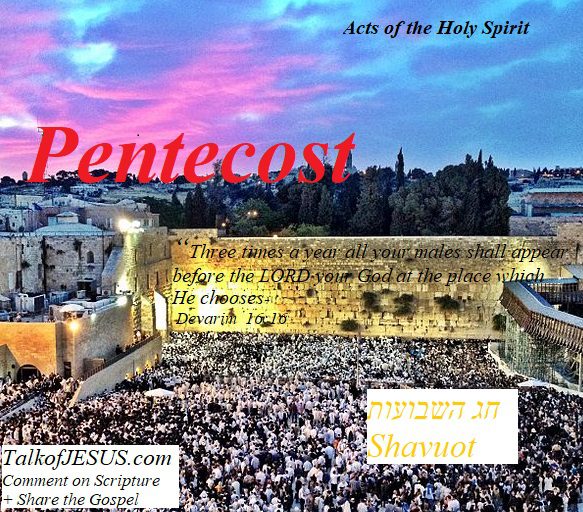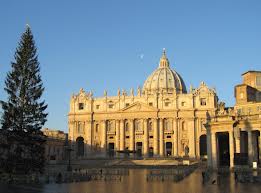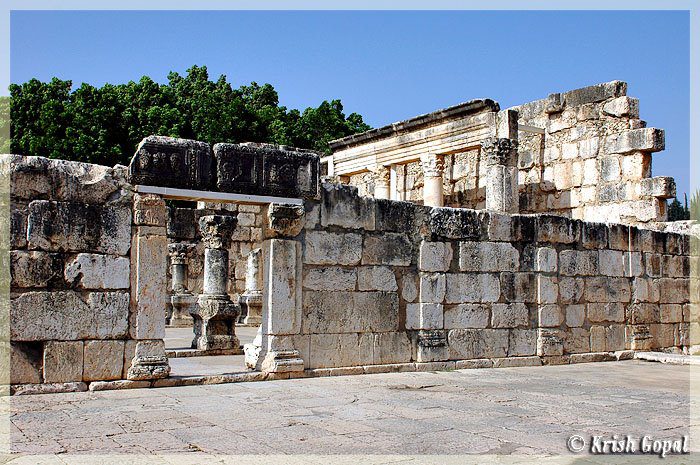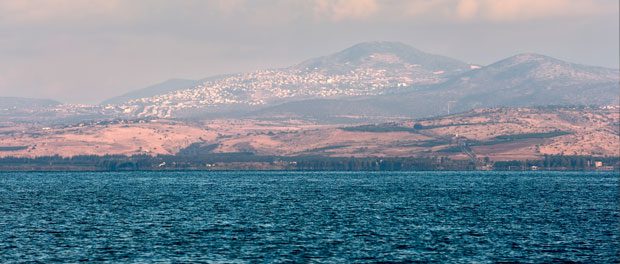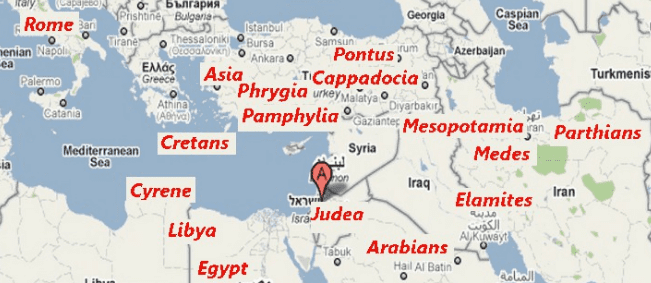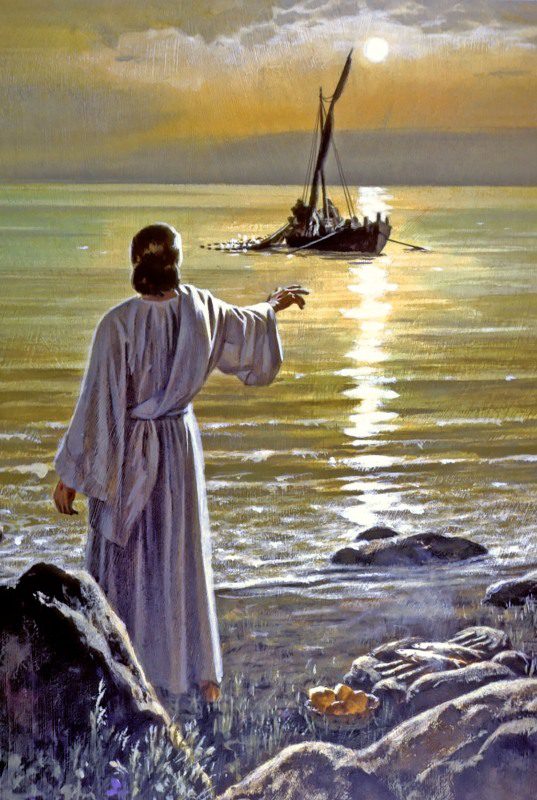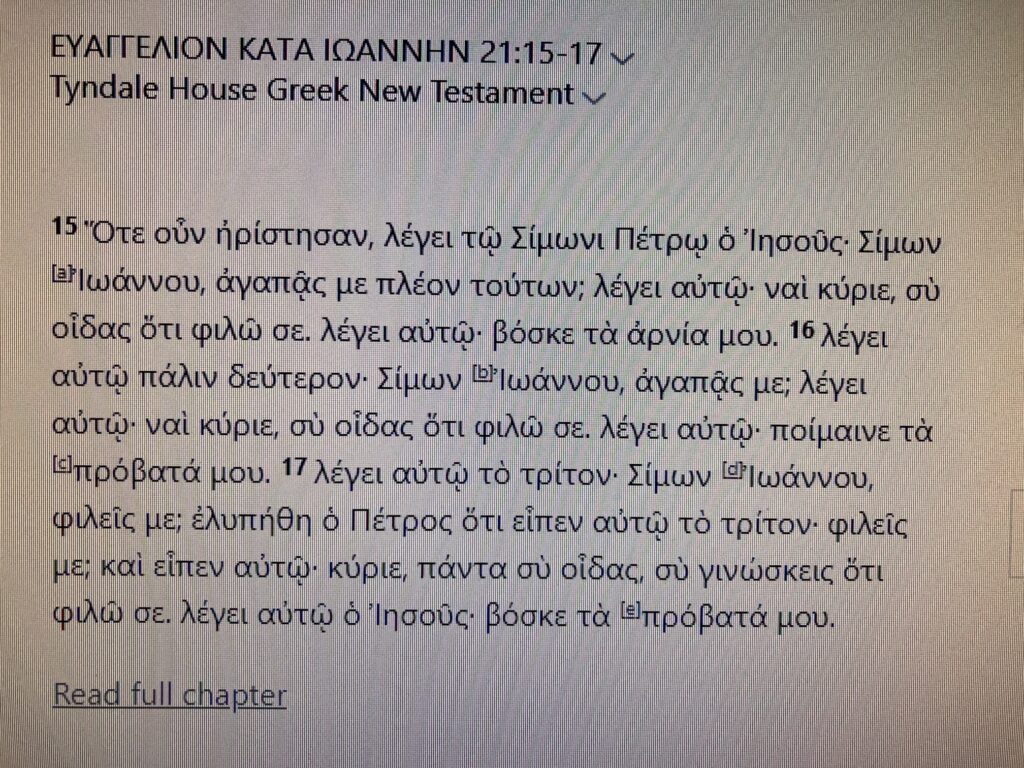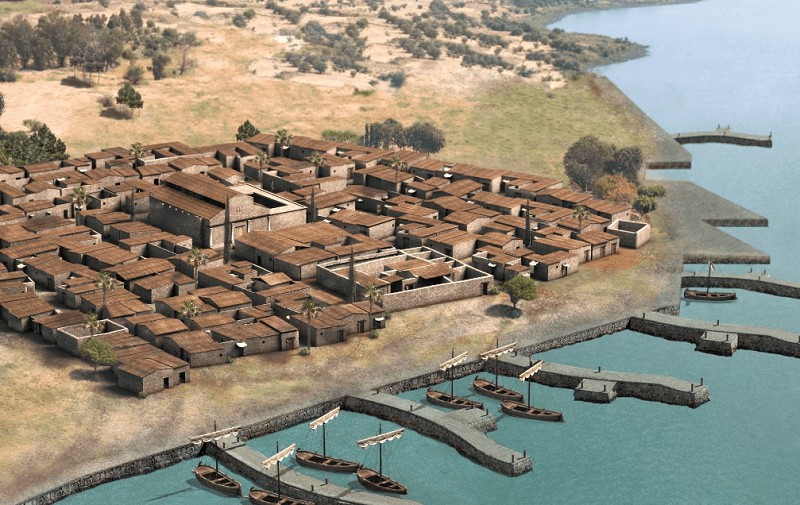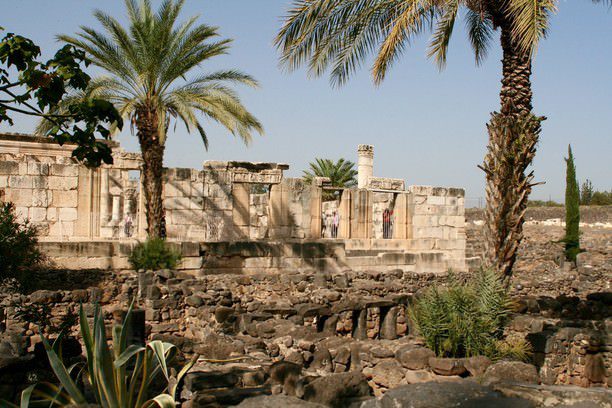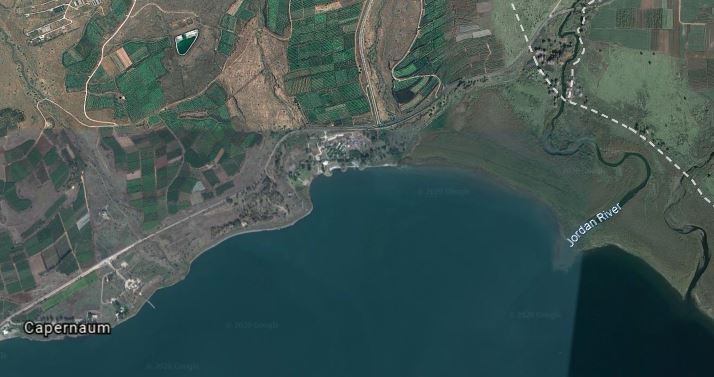Can any man forbid water, that these should not be baptized, which have received the Holy Ghost as well as we?
Acts of the Apostles 10:47 KJV
The Question of those ‘chosen’
Fact is that many religious men do NOT fear God.
It is true of many ‘christians‘ in this 21st century — it was true of all but a remnant of faithful ‘jews‘ in the first century in which the messiah Jesus lived, died and was risen — and it was true when His Apostles and disciples preached in the Spirit of God. Men and women do not naturally fear what we have been told about the LORD if we have not encountered Him personally.
But the Comforter, which is the Holy Ghost, whom the Father will send in my name, he shall teach you all things, and bring all things to your remembrance, whatsoever I have said unto you.
Gospel of John 14:26 KJV
They certainly did not know what to expect when the Holy Ghost first came to various jewish disciples of Jesus.
And, being assembled together with them, commanded them that they should not depart from Jerusalem, but wait for the promise of the Father, which, saith he, ye have heard of me.
Acts of the Apostles 1:4 KJV
Peter, John and the Apostles have proclaimed Christ boldly, first in Jerusalem.
By the power of the Holy Ghost (KJV) many signs have accompanied the receiving of the Spirit among the faithful jewish followers of The Way of Jesus. Even Saul of Tarsus, zealous persecutor of The Way, has encountered the risen Lord Jesus personally and then retreated to Arabia to reconsider what the LORD has in store for him, returning to meet Peter some three years later.
Everything seems to be looking up for these remnant ‘chosen‘ followers of Jesus as they now obediently ‘GO INTO THE WORLD TO PROCLAIM THE GOOD NEWS!’
Beyond Jerusalem
The Apostles had encountered some internal ‘church‘ problems with their new disciples in Jerusalem.
And in those days when the number of the disciples was multiplied, there arose a murmuring of the Grecians against the Hebrews, because their widows were neglected in the daily ministration.
Acts of the Apostles 6:1 KJ21
However this ministry problem seemed to resolve quickly in spite of jewish cultural differences between Greeks and Hebrew traditions of those whose fathers had returned to Jerusalem from exile to rebuild the temple. Furthermore, at least two of new disciples became powerful preachers of the truth of the Gospel – Stephen and Philip.
7 And the Word of God increased; and the number of the disciples multiplied in Jerusalem greatly, and a great company of the priests were obedient to the faith.
Acts of the Apostles 6:7
Like Gentiles (sort of)
Samaria (to some jews) and also Galilee, as part of Israel separated from Judah long ago, had an ‘unjewish‘ stigma to some religious Judeans.
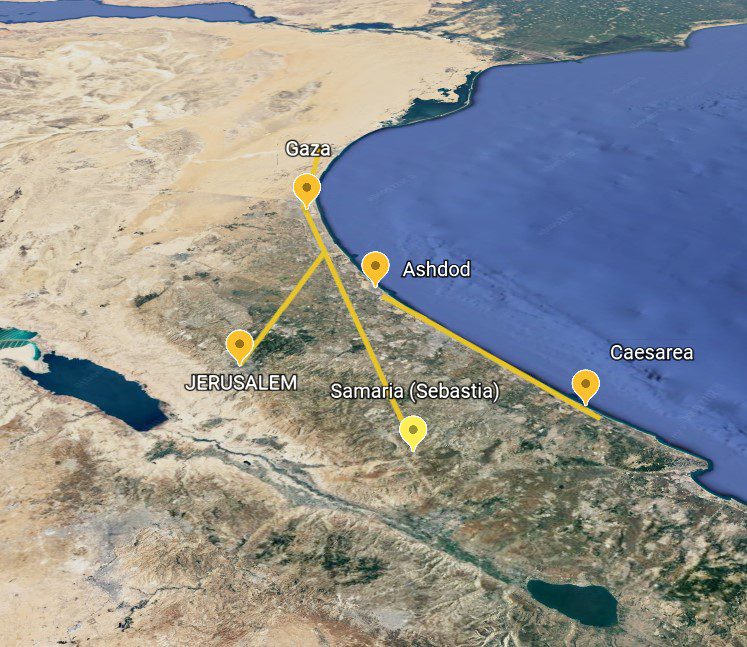
Cities visited by Philip the evangelist
Philip went down to the city of Samaria and began proclaiming the Christ to them. The crowds were paying attention with one mind to what was being said by Philip, as they heard and saw the signs which he was performing. 7 For in the case of many who had unclean spirits, they were coming out of them shouting with a loud voice.. – Acts 8:5-6a NASB
Note this same sign of expelling UNCLEAN SPIRITS which Jesus had done! (Most 21st centuries don't quite grasp what to make of this, but think 'controlling ghosts' as real evil influences of behavior and you are on the right track. - RH
[KJ21] 9 But there was a certain man called Simon, who earlier in the same city had used sorcery and bewitched the people of Samaria, claiming that he was someone great..
When Peter and John came to Samaria, Simon asked Peter for this same power the Apostles and some disciples like Philip had demonstrated. The Holy Ghost appears with more POWER than any force of darkness dictating the power of evil in mortal flesh.
But Peter said unto him, Thy money perish with thee, because thou hast thought that the gift of God may be purchased with money.
Acts of the Apostles 8:20 KJV – Peter’s response to Simon the Sorcerer
THEN Philip goes much further than this: He baptizes an Ethiopian (in Gaza) – a gentile!
Luke (our gentile physician) records in ACTS:
But Philip found himself at Azotus, and as he passed through he kept preaching the gospel to all the cities, until he came to Caesarea.
Acts 8:40 NASB
Philip (the Hellenist deacon) & Peter (a Galilean Hebrew Apostle)
So WHERE in the WORLD does all of this converge?
Peter had come from Jerusalem to Samaria to meet with Philip when he also met Simon who wanted the power of the Holy Ghost. We have just learned that now Peter’s missionary journeys have brought the Apostle to Joppa, BUT a Roman calls the Apostle to come to the Roman (Herod-built) port of Caesarea.
Peter and John had remained in Jerusalem for two years after Christ’s resurrection. Once Stephen was martyred most disciples of Jesus fled for other towns. But after Saul met the Lord on the road to Damascus the Gospel began to spread in different directions.
And as we have just learned in the journeys of Peter to Lydda and Joppa, the Apostle now heads north to Caesarea where Philip has been proclaiming the Gospel for sometime now.
Peter, the Hebrew-raised rock anointed by Jesus to lead His church goes to Caesarea after wrestling with the Voice of God telling this faithful jew to obey this new vision which led him to follow these Romans back to Caesarea, where these GENTILES would have worshiped PETER!
Now that you have caught up on these long journeys and Peter is on his way back to Jerusalem you might think that all will go smoothly. It doesn’t.
The HOLY Ghost
Before we return to Jerusalem with Peter, I thought it important that we consider the NOW-INCREASING ROLE of THE HOLY SPIRIT.
The "HOLY SPIRIT" AND the "HOLY GHOST" ARE the SAME, translated in New Testament from the SAME words in Greek: ἅγιος πνεῦμα [hagios pneuma]
- HOLY – ἅγιος hágios, hag’-ee-os; from ἅγος hágos (an awful thing) (compare G53, G2282); sacred (physically, pure, morally blameless or religious, ceremonially, consecrated):—(most) holy (one, thing), saint.
- I remind 21st c. christians of the AWESOMENESS of the SPIRIT of Almighty God by referring to the Holy Ghost here) – RH
ἅγιος, -α, -ον, (from τὸ ἄγος religious awe, reverence; ἄζω, ἅζομαι, to venerate, revere, especially the gods, parents [Curtius, § 118]), rare in secular authors; very frequent in the sacred writings; in the Sept. for קָדושׁ;
- properly reverend, worthy of veneration: τὸ ὄνομα τοῦ θεοῦ, Luke 1:49; God, on account of his incomparable majesty, Revelation 4:8 (Isaiah 6:3, etc.), equivalent to ἔνδοξος.
- Ghost πνεῦμα pneuma From πνέω (G4154)
- – The KJV translates Strong’s G4151 in the following manner: Spirit (111x), Holy Ghost (89x), Spirit (of God) (13x), Spirit (of the Lord) (5x), (My) Spirit (3x), Spirit (of truth) (3x), Spirit (of Christ) (2x), human (spirit) (49x), (evil) spirit (47x), spirit (general) (26x), spirit (8x), (Jesus’ own) spirit (6x), (Jesus’ own) ghost (2x), miscellaneous (21x).
- the third person of the triune God, the Holy Spirit, coequal, coeternal with the Father and the Son
ACTS of the Holy Ghost
- 1:2 Until the day in which he was taken up, after that he through the Holy Ghost G4151 had given commandments unto the apostles whom he had chosen:
- 1:5 For John truly baptized with water; but ye shall be baptized with the Holy Ghost G4151 not many days hence.
- 2:4 And they were all filled with the Holy Ghost, G4151 and began to speak with other tongues, as the Spirit G4151 gave them utterance.
- 2:18 And on my servants and on my handmaidens I will pour out in those days of my Spirit; G4151 and they shall prophesy:
- 4:18 And when they had prayed, the place was shaken where they were assembled together; and they were all filled with the Holy Ghost, G4151 and they spake the word of God with boldness.
- 8:17 Then laid they their hands on them, and they received the Holy Ghost. G4151
- 8:39 And when they were come up out of the water, the Spirit G4151 of the Lord caught away Philip, that the eunuch saw him no more: and he went on his way rejoicing.
ACTS 10:
You know of Jesus of Nazareth, how God anointed Him with the Holy Spirit and with power, and how He went about doing good and healing all who were oppressed by the devil, for God was with Him. We are witnesses of all the things that He did both in the country of the Jews and in Jerusalem.
Acts of the Apostles 8:38-39a NASB
38 how God anointed Jesus of Nazareth with the Holy Ghost and with power,
Acts 10:38 KJ21
43 To Him all the prophets bear witness, that through His name whosoever believeth in Him shall receive remission of sins.”
44 While Peter was yet speaking these words, the Holy Ghost fell on all those who heard the Word.
And the Messianic Jews who had come with Kefa were mishpoyel (standing in awe) that also upon the Goyim the matnat HaRuach Hakodesh has been poured out.
Gevurot 10:45
Orthodox Jewish Bible
46 For they heard them speak with tongues and magnify God.
Peter Baptizes the Roman Gentiles
Then answered Peter,
47 “Can any man forbid water, that these should not be baptized who have received the Holy Ghost, as well as we?”
48 And he commanded them to be baptized in the name of the Lord.
Then they entreated him to tarry certain days.
Gevurot 11 – Orthodox Jewish Bible
And the Moshiach’s Shlichim and the Achim b’Moshiach, the ones throughout Yehudah, heard that also the non-Jews received the dvar Hashem. But when Kefa went up to Yerushalayim, those of the faction of the Bris Milah were taking issue with him, 3 Saying, “You entered into a bais of anashim arelim (uncircumcised men) and you sat at tish with them.”
Acts of Peter welcoming the Gentiles - To be continued...

